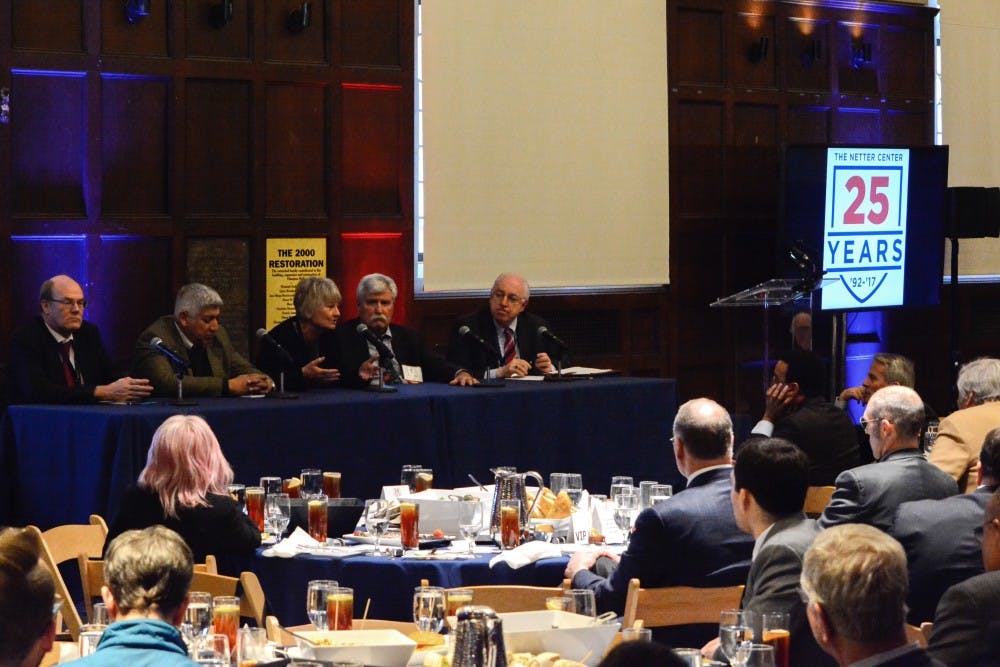The Barbara and Edward Netter Center for Community Partnerships, which is Penn's primary institution for applying expertise and resources within the University to neighborhoods in West Philadelphia, celebrated its 25th anniversary on Nov. 16-17.
The Center for Community Partnerships was formed in 1992. It developed out of a nonprofit called West Philadelphia Partnership and the Office of Community-Oriented Policy Studies at Penn, both founded in 1983. In 2007, the Center was renamed to recognize the efforts of Barbara and Edward Netter. The Center is in charge of various signature programs at Penn such as Academically-Based Service Courses, which allow students and faculty to partner with West Philadelphia schools and community organizations.
Last week, the Center brought together various stakeholders in education for a two-day conference filled with talks on a range of topics. These included three panels around the topics of “Community Health,” “Education, Citizenship, and Democracy,” and “University-Assisted Community Economic Development.”
The conference also featured speeches from Penn President Amy Gutmann, Provost Wendell Pritchett, Dean of Admissions Eric Furda, and Netter Center founding Director Ira Harkavy.

Anea Moore, College junior and chair of the Netter Center’s Student Advisory Board, spoke at the Student/Alumni Civic Engagement panel about how civic engagement on college campuses can be undervalued.
“This isn’t a hobby for a lot of us; it’s not something fun that we do," she said. "It’s our life work and it has taught us a bunch of things.”
Moore has worked with the Center since her freshman year, and currently manages a music program and directs a youth choir at the Henry C. Lea Elementary School located at 47th and Locust streets. She said this kind of service has taught her valuable skills that can be applied in various professional opportunities.
“I can go into any job and say that I have things like budgeting skills and team management skills without having a job at Goldman Sachs,” she said.
The last event of the conference was a panel that focused on the future of community-based education titled, “Where Do We Go From Here? Global Perspectives from Leaders of Higher Educational Organizations.” Moderated by Richard Guarasci, the president of Wagner College and vice chair of the Association of American Colleges and Universities, the panel featured four educators from across the globe.
In closing remarks, Harkavy emphasized the importance of collaboration between Penn and community leaders.
“The intellectual agenda is the agenda of the world and the community," he said. "That becomes a way to both bring people together, [and also] transform us.”



